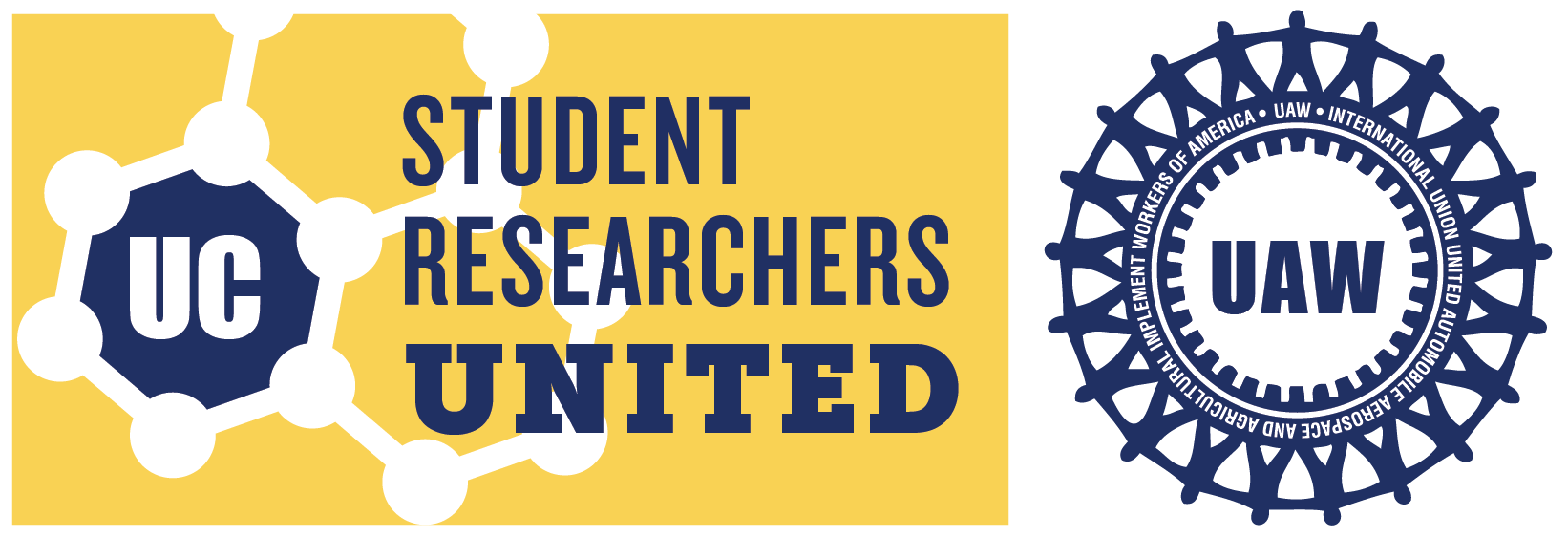The Truth about UC’s Refusal to Recognize SRU-UAW
On August 4, the California Public Employment Relations Board (PERB) verified that the majority of approximately 17,000 Student Researchers chose to form a union, Student Researchers United-UAW. However, on September 2, the University of California (UC) submitted a letter to PERB disputing the employment status and collective bargaining rights of thousands of workers, denying recognition for the entire unit. UC’s letter is full of misleading claims that are meant to confuse Student Researchers about their collective bargaining rights under California law and deceive the public about UC’s role in undermining the democratic choice of a supermajority of Student Researchers to form a union.
SRU-UAW filed a response to UC’s denial of recognition, including a petition for board investigation, on September 8th. In the petition, SRU-UAW makes a series of arguments explaining how and why all of the petitioned-for student researchers are student employees with collective bargaining rights and share a community of interest. In the petition, the Union relies upon judicial and legislative history regarding academic student employees’ collective bargaining rights, the reality of Student Researcher employment at the University of California, and the University’s own support for postdocs funded directly by external funding agencies being included in the 2008 UC Postdoctoral Scholar HEERA recognition petition.
Let’s examine the arguments that UC is making and look at what Student Researcher work is really like.
|
UC’s Argument |
SRU-UAW’s Argument |
|
UC is claiming that Fellows and Trainees are just students, not students and employees, and therefore should not be included in the bargaining unit. |
Fellows and Trainees are student employees who are registered students at the University of California and who work under the direction of their PIs (Principal Investigators). SB 201 (Skinner) was passed by the California Legislature in 2017 and states unequivocally that student employees, whose employment is contingent on their status as a student, are employees. The fact that Fellows and Trainees are student employees grants them collective bargaining rights under HEERA (The Higher Education Employer-Employee Relations Act). Trainees and Fellows perform the same job functions as Graduate Student Researchers, who UC acknowledges should be in the unit. As UC argued in the context of the 2008 Postdoc petition for union recognition, many researchers have different sources of funding throughout their time at UC, and sometimes at the same time…. “Thus, a [Researcher] may stay in the same laboratory, working for the same PI, doing the same research and nothing will change except their source of funding.” As such, funding source is not an obstacle to employees’ collective bargaining rights. |
|
UC is claiming that Fellows and Trainees are not employees because they do not receive W-2s and therefore do not have collective bargaining rights. |
There is no legal requirement that someone receive a W-2 to be considered an employee under HEERA. In fact, hundreds of unionized Postdocs do not receive W-2s at the UC. An employee under the law is someone who is “subject to the control” of their employer and receives remuneration for the labor they provide. Under HEERA, student employees have collective bargaining rights. As long as an SR is a student and receives remuneration for work, they are an employee. |
|
UC is claiming that Fellows and Trainees are not “student employees” and don’t share a “community of interest” with GSRs because UC does not exercise the same “control” with Fellows and Trainees that it does for GSRs. They claim that GSRs all report to faculty within the University and non-GSRs often report to an outside entity. |
Fellows/Trainees are supervised by and report to their PIs, in addition to complying with other requirements where applicable. All grants have “deliverables,” even the ones GSRs, Postdocs, Project Scientists, Specialists, Faculty, etc. receive. As the UC has stated for Postdocs, sponsoring agencies merely provide money, while the University controls terms and conditions of employment, e.g. access to pay/benefits, compensation rates, etc. |
|
UC is claiming that non-GSRs and GSRs do not work toward established common goals as the goals for GSRs are set by the University whereas the non-GSR’s goals are set by third party entities. |
As UC argued in the Postdoc context, those funded directly by external funding agencies vs. those funded as Postdoctoral Employees and Fellows: “All Postdoctoral Scholars perform the same type of work, research, and they all work toward the same goal—engaging in leading edge research.” |
|
UC claims that they aren’t aware of any graduate fellows and trainees being included in a bargaining unit at any other university. |
Fellows and trainees are recognized at many campuses, including: Harvard, Columbia, University of Washington, University of Connecticut and UMass. |
|
UC is claiming that external funding agencies say that their grants do not create an employment relationship. |
Yes, the external funding agencies highlight that there is no employment relationship with the external agency to make clear that the host University retains the employment relationship. |
